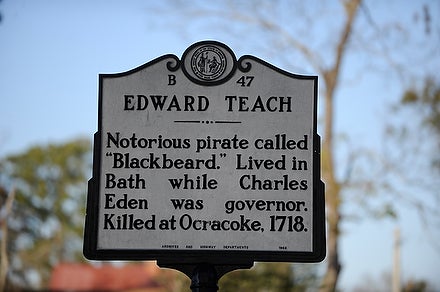A first for emergency response plans
Published 8:08 pm Wednesday, July 13, 2016

- DAILY NEWS PROPER RESPONSE: Al Powell, a former FBI agent, is preparing an emergency response plan for the Washington-Warren Airport.
Washington could be the first city in North Carolina with small airport to put in an emergency response plan for its airport, according to City Manager Bobby Roberson.
That plan for Washington-Warren Airport was discussed during the Washington-Warren Airport Advisory Board’s meeting Tuesday. The city is working with Al Powell, a former FBI special agent with counterterrorism experience and current director of the Beaufort County Police Activities League, to develop the response plan, which is in draft stage.
“What we’re doing is doing an airport emergency response plan. Airports that have commercial carriers, Greenville for example, have to have emergency response plan, but airports like ours are not required to. They just have to comply with a number of FAA rules, TSA rules and (North Carolina) Division of Aviation rules,” said Gil Alligood, chairman of the advisory board. “Our airport has been getting a bit busier, and we’re just trying to keep it operating properly and safely, and, if there is an event of any kind, know how to respond to it.
Alligood said Powell is preparing the plan, which will address what to do if something happens, who to call, who to report it to and how to make a follow-up report. The plan’s foremost goal is to ensure safety and proper, adequate response to an emergency.
Emergencies could include a gear-up landing on a runway or an intruder vandalizing aircraft or airport equipment, Alligood said. “There could be a fuel fire or something of that nature. These things do happen at airports. It’s not a casual operation — an airport is an intense operation. They have to be very careful and pay attention to what they’re doing.”
Alligood continued: “This plan, we’ve been told, may be the first one in the state for a general-aviation airport our size. The Division of Aviation may use it as a model to try to get others to do the same thing.”
Alligood said having such a plan makes sense, but he would prefer it never has to be used.
Powell also prefers having the plan in case it’s needed, hoping that need never arises.
“It’s basically an all-hazards contingency plan. FEMA recommends any time you’re doing a security or emergency response plan, you identify what the most logical vulnerabilities and risks are, regardless whether they are biological, natural or manmade and incorporate it into one concise document that is simplified yet provides guidance in the event of an emergency so folks know what they are doing,” Powell said. The former chief of a counterterrorism unit believes his experience in that realm and that of a pilot gives him needed insight to develop such a plan.
Powell is working with the North Carolina Department of Transportation in developing the plan. The plan, Powell said, is an offshoot of BC PAL’s program to create a safer community. The airport advisory board learned of his involvement with creating similar plans for other entities in the community and invited him to do the same for the airport, Powell said.
“This would be the model that the Department of Transportation wants to use for the rest of the state. So, that’s why they’re closely watching this with excitement,” Powell said.
Once the plan is completed, Powell said, it would be available for public scrutiny.
Note: TSA refers to the Transportation Security Administration. FEMA refers to the Federal Emergency Management Agency. FAA refers to the Federal Aviation Administration.






